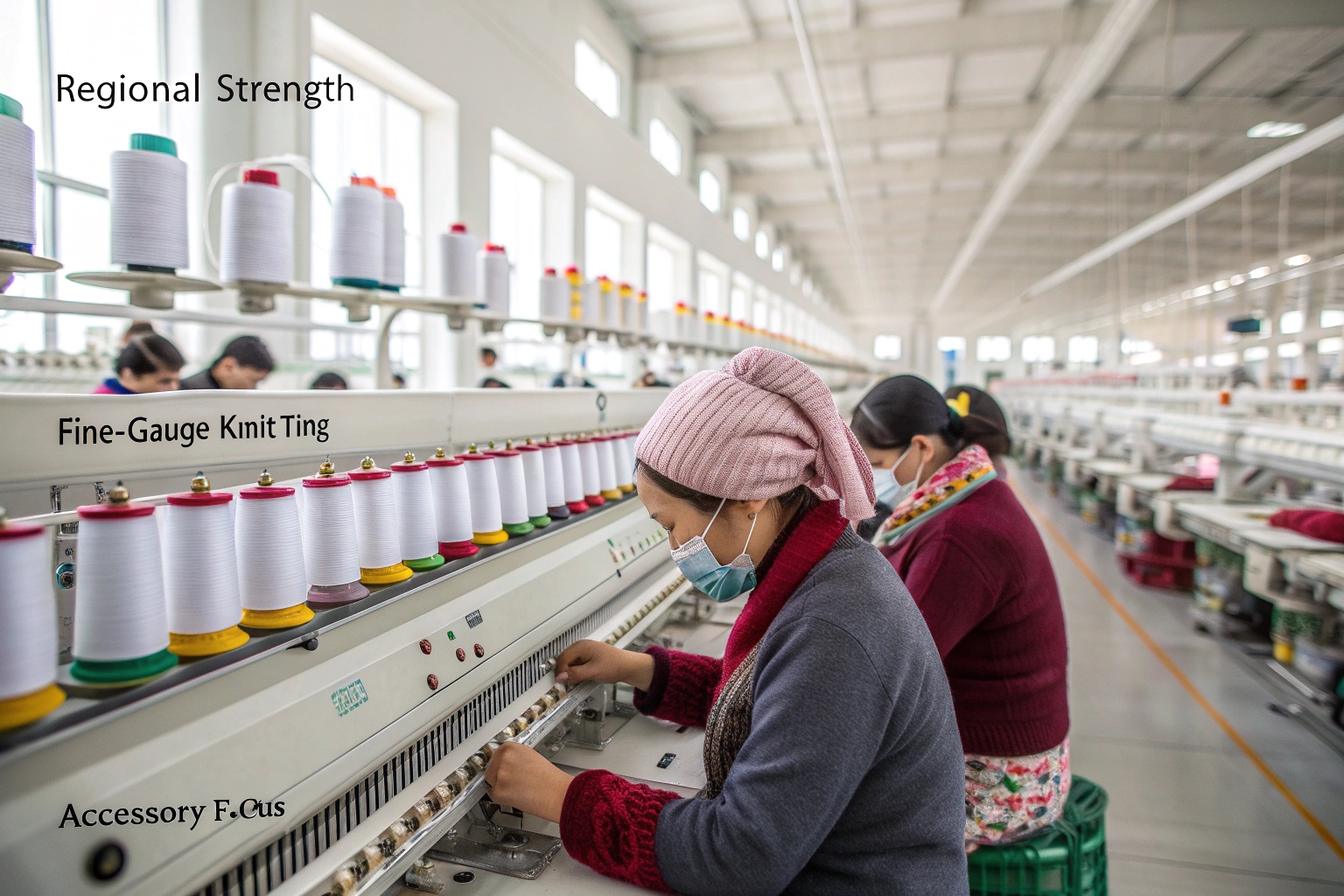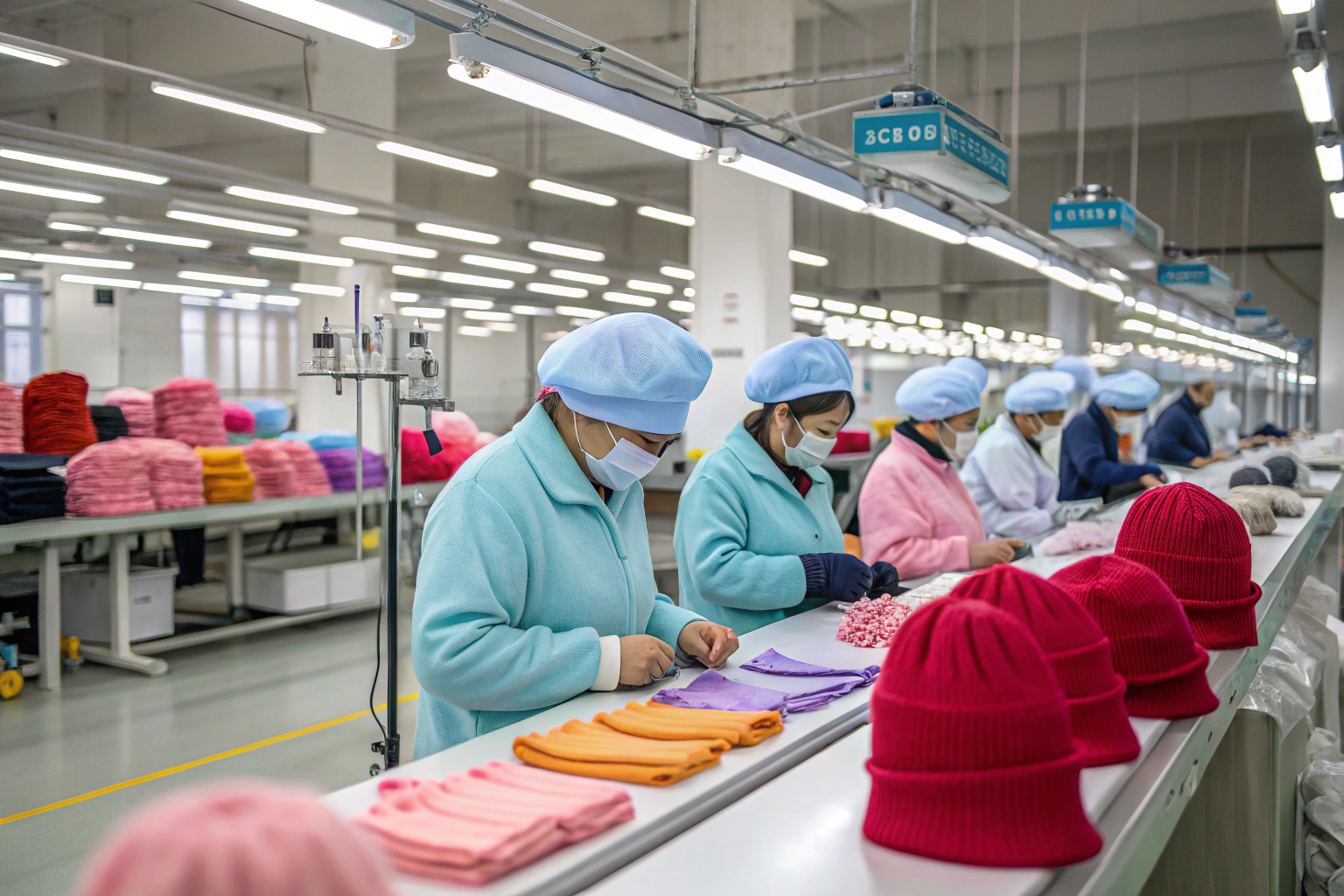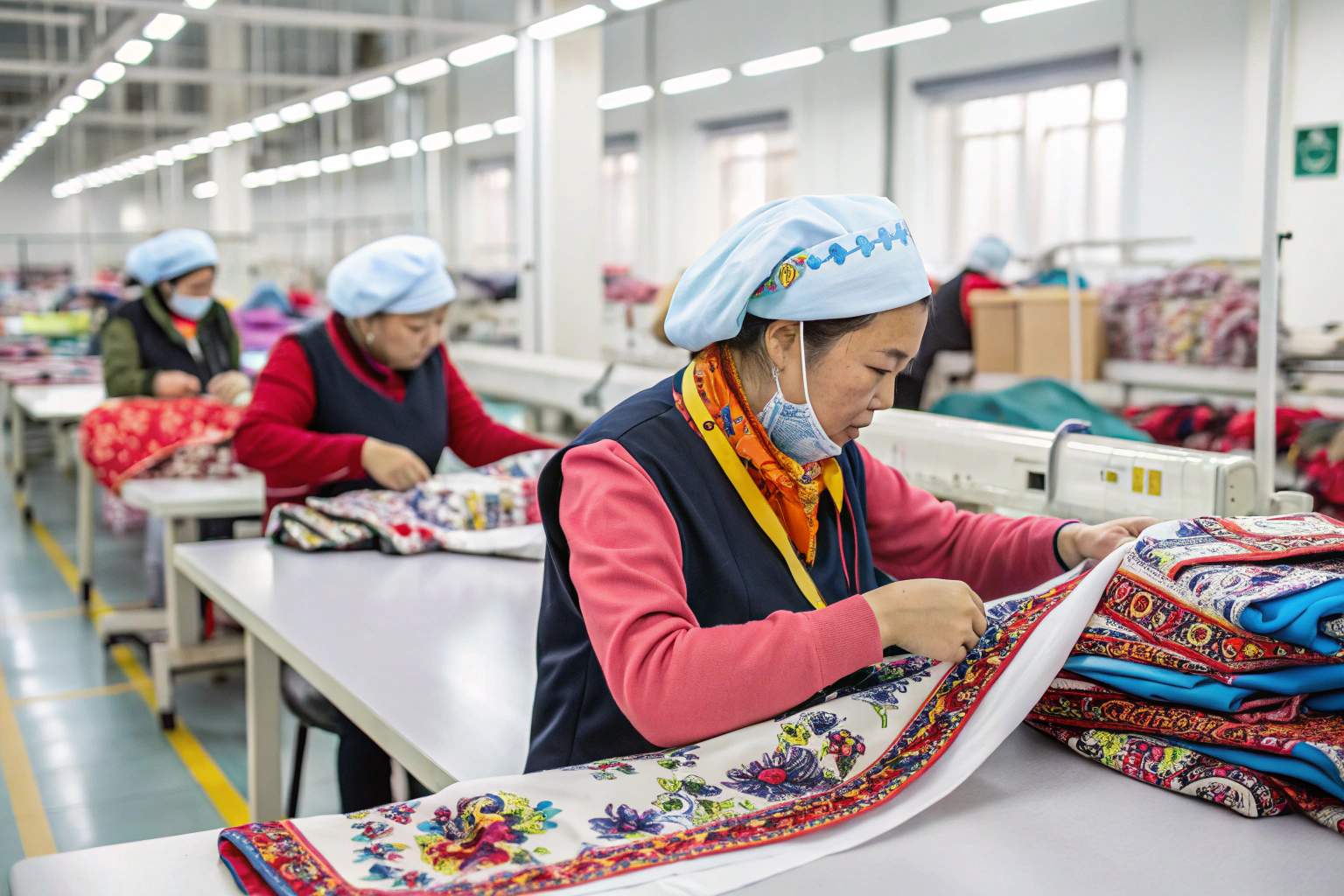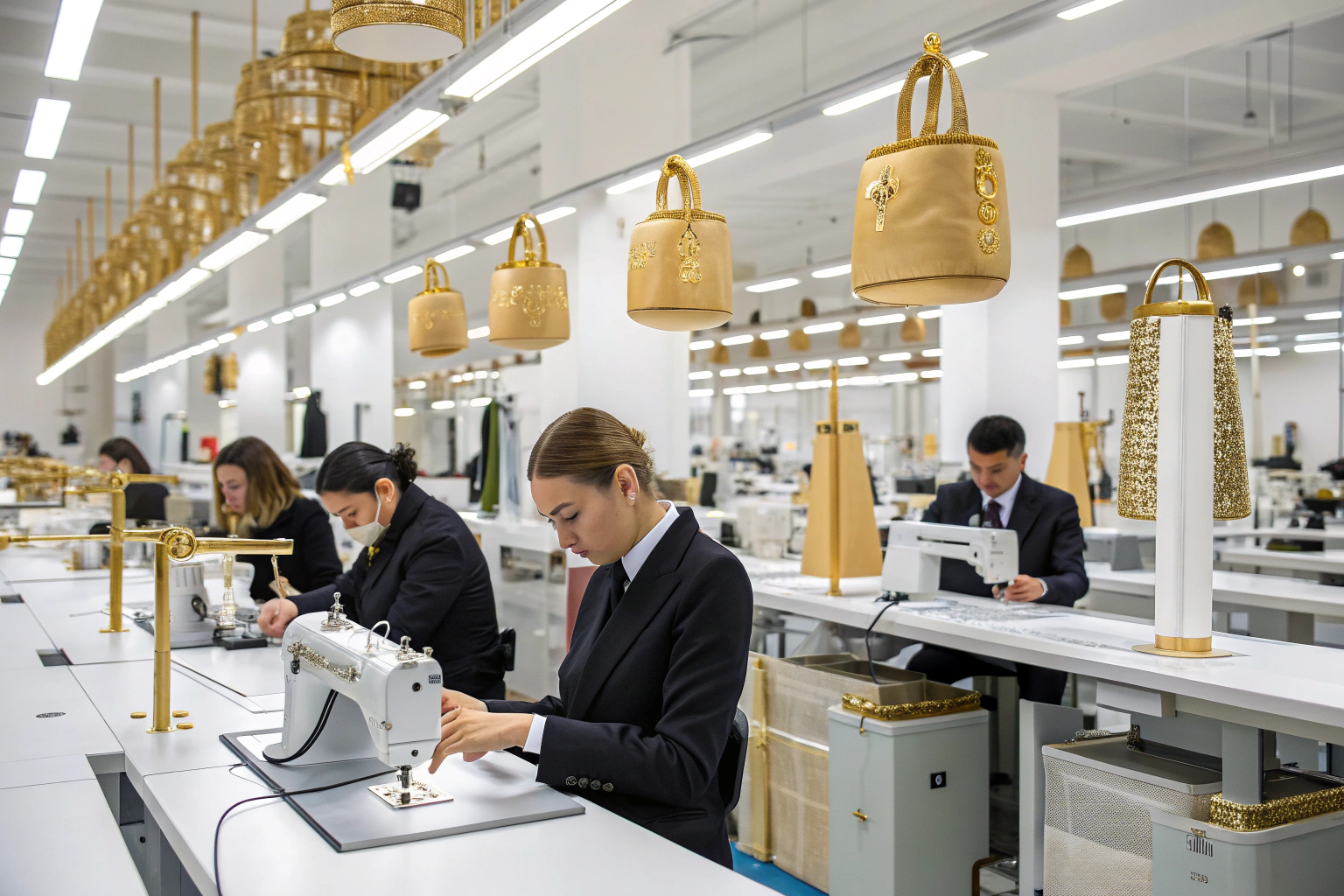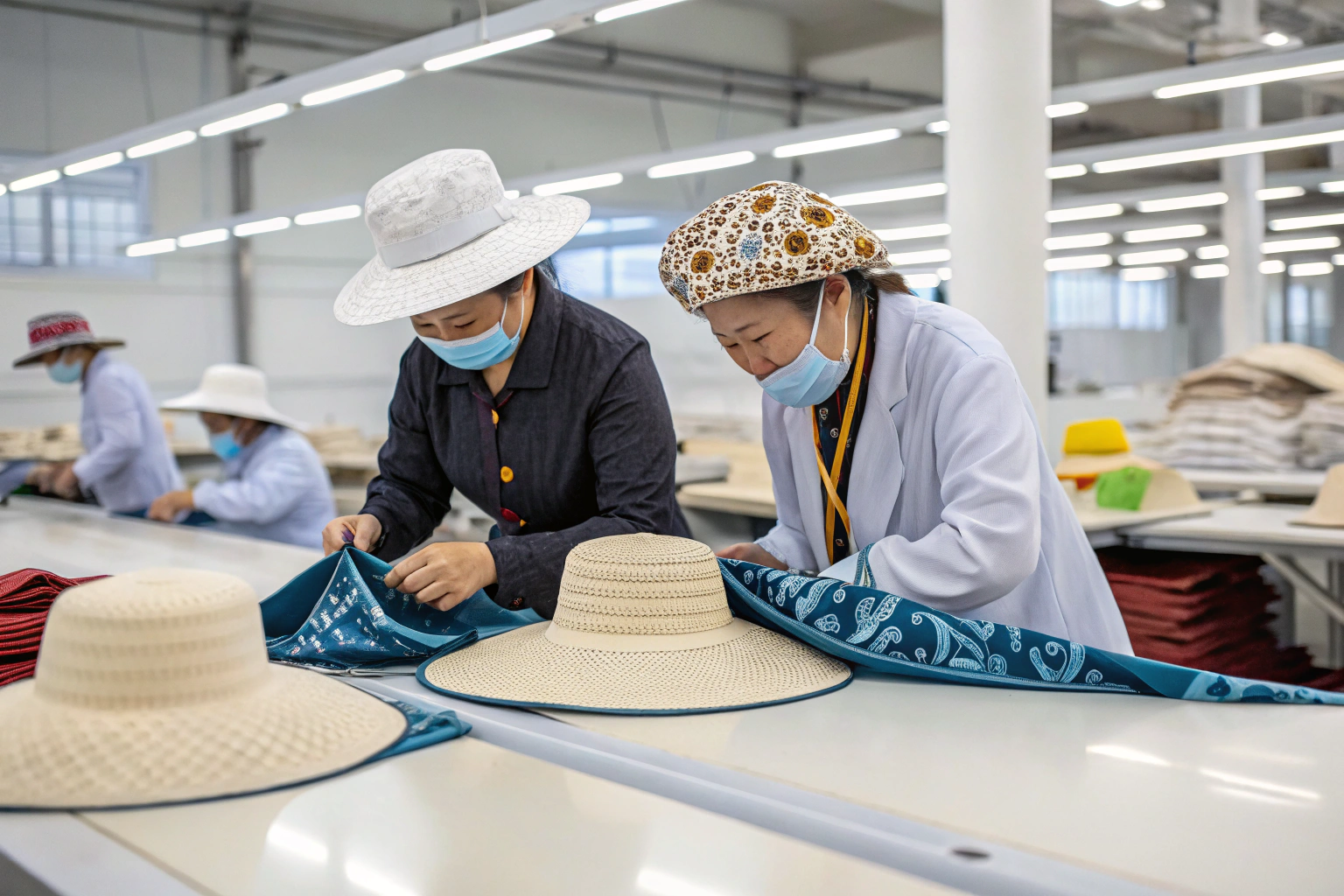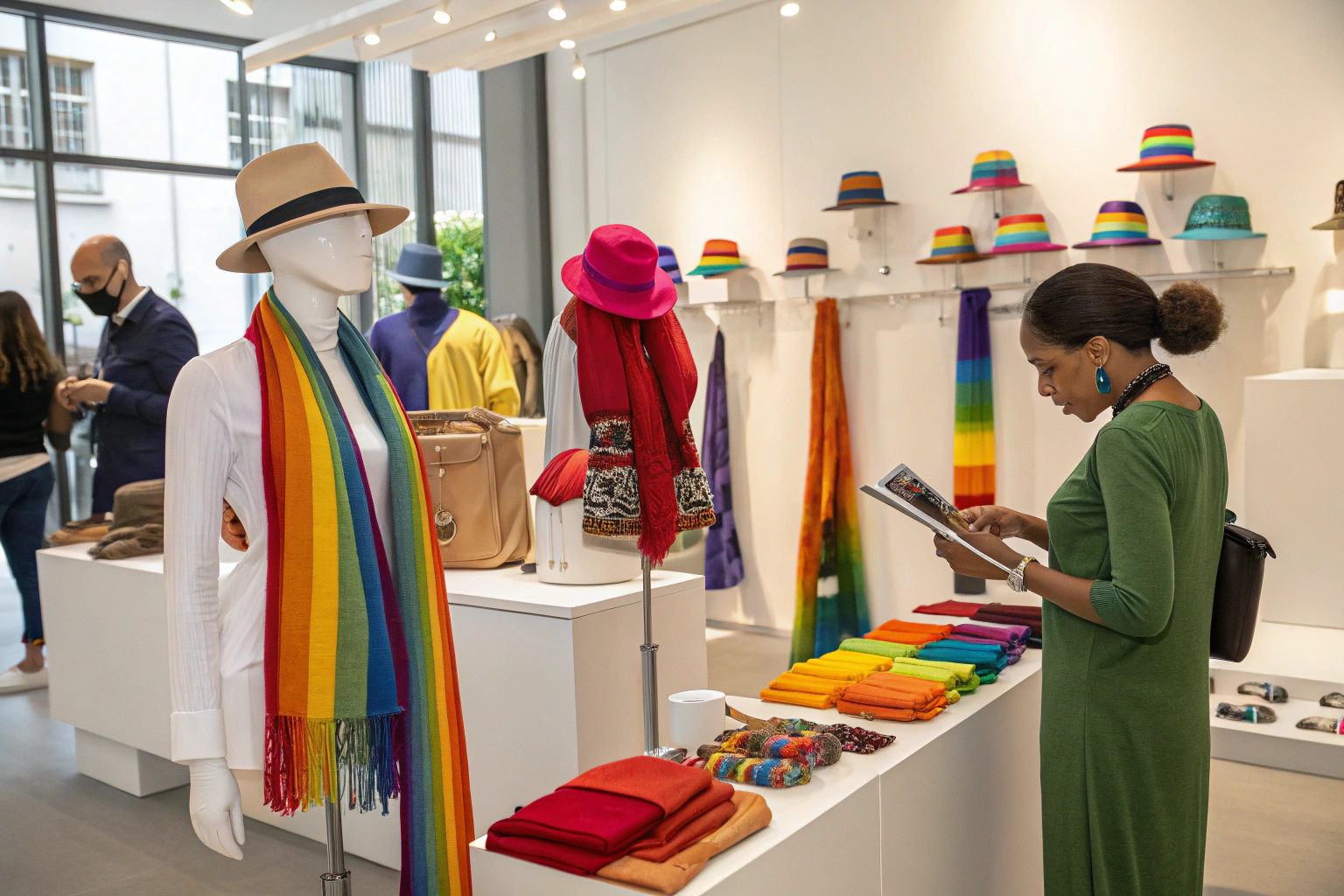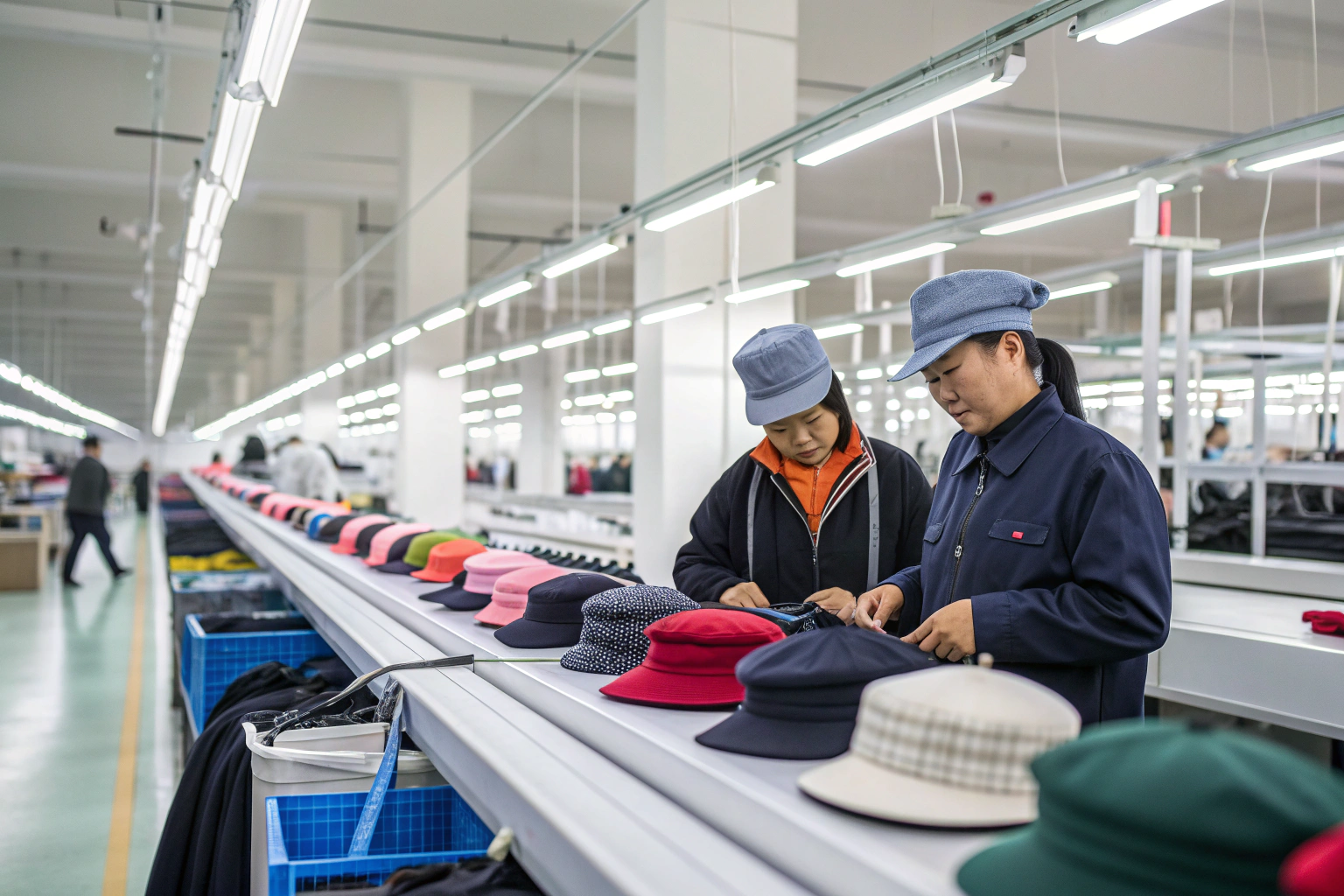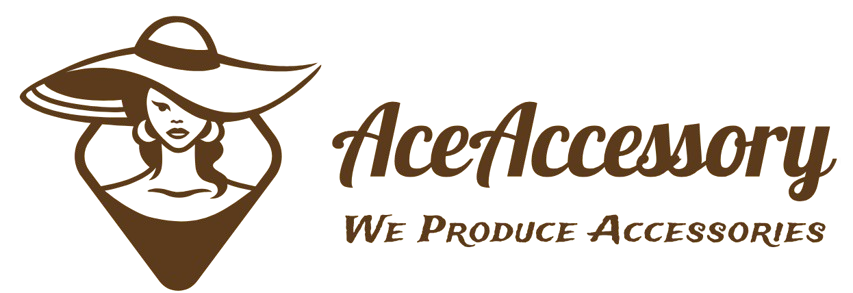If you’re building a winter accessory line or boutique collection, sourcing knitted and crocheted goods is essential. But not all factories can handle fine yarn work, especially for custom patterns or low-volume runs. Finding the right match takes more than scrolling Alibaba.
To find factories specializing in knit and crochet accessories in China, focus on regional strengths like Zhejiang or Jiangsu, verify handwork capabilities, inspect certifications, and check flexibility for small-batch sampling.
At AceAccessory, we collaborate with select knitwear partners who excel at accessories like beanies, gloves, scarves, and hand-crocheted trims. Here's how to identify and qualify the right suppliers.
Top Regions in China for Knitwear Manufacturing
Choosing the right region in China can make or break your knitwear production. Different provinces specialize in different types of yarn work—from machine-knitted beanies to hand-crocheted collars or gloves.
China’s top knitwear hubs include Zhejiang (Yiwu, Shaoxing), Jiangsu (Changshu, Zhangjiagang), and Guangdong (Dongguan), with each region offering unique specialization in knitted or crocheted accessory manufacturing.
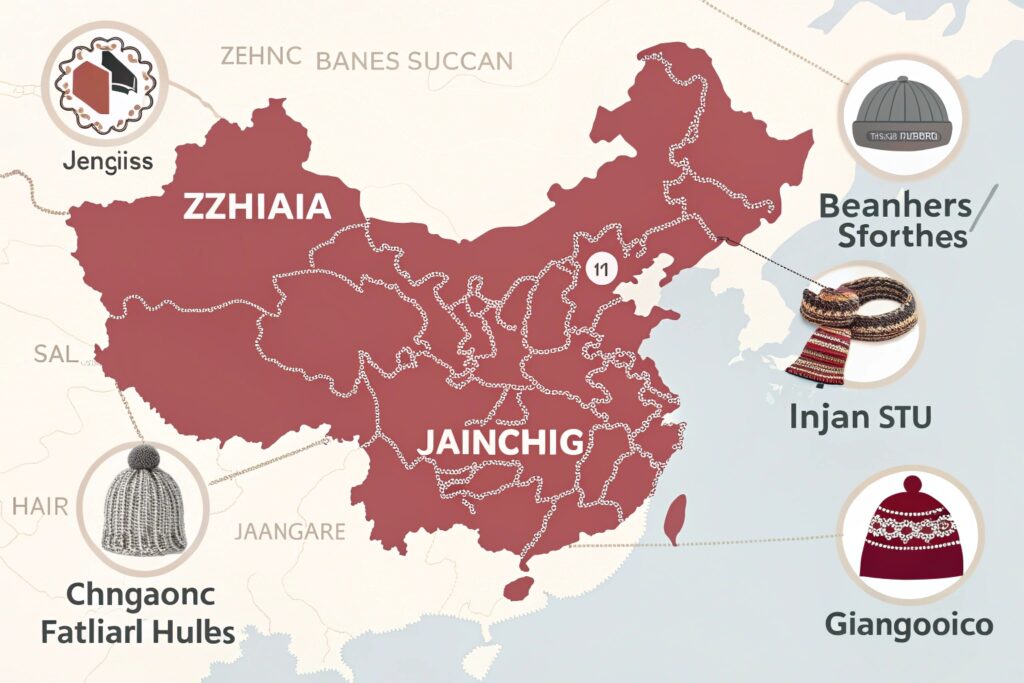
Major Knitwear Manufacturing Areas in China
| Region | Specialties | Notes |
|---|---|---|
| Yiwu, Zhejiang | Knit hats, scarves, gloves, fast mass output | Accessory focus, strong export infrastructure |
| Shaoxing, Zhejiang | Fashion knits, ribbed fabrics, sweater trims | Good for OEM beanie production |
| Changshu, Jiangsu | Flat knits, custom jacquard scarves | Proximity to yarn suppliers and dyeing houses |
| Dongguan, Guangdong | Crochet lace, boutique handcrafts | High-labor, low-volume hand-sewing options available |
| Wenzhou, Zhejiang | Crochet trims, gift items | Ideal for seasonal or novelty accessories |
AceAccessory operates primarily in Yiwu and Shaoxing, where factories use 3G to 12G flat knitting machines and hand finishing teams handle custom projects.
How to Identify Skilled Crochet Accessory Suppliers?
Crochet is a unique niche. It can’t be mass-produced by machine in the traditional sense. Most crochet work still involves some level of manual labor—especially for trims, flower appliqués, or full crochet caps.
To identify skilled crochet suppliers, request samples with varied stitch types, ask for past client references, and verify if they offer hand-finishing workshops or crochet-specific teams.
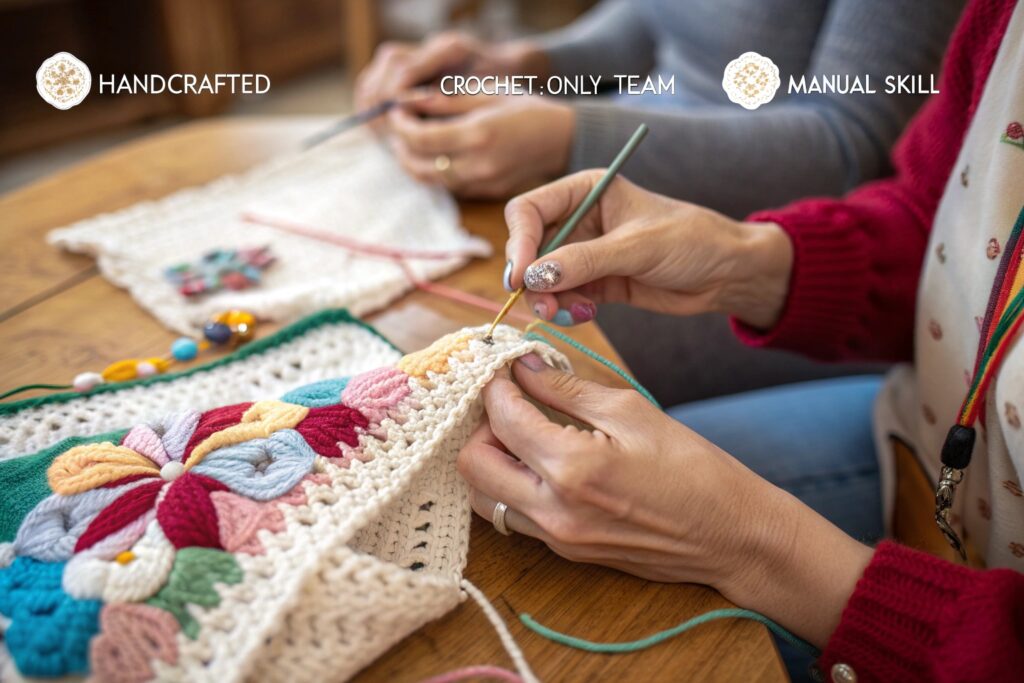
Checklist for Vetting Crochet Accessory Suppliers
| Evaluation Point | What to Ask / Look For |
|---|---|
| Stitch Library Samples | Do they have swatches of shell, popcorn, cable, etc.? |
| Handmade Capacity | How many skilled crochet workers are on site? |
| Previous Client Portfolio | Have they worked with brands requiring hand crochet? |
| Timeline for Manual Work | Are they upfront about delivery for handmade items? |
| Yarn Knowledge | Can they suggest suitable blends for hand-crochet? |
AceAccessory collaborates with small crochet workshops in Wenzhou and Shantou to fulfill limited orders for:
- Baby accessories
- Holiday sets
- Boutique trims
Our partners can handle 500–2,000 pcs per SKU, with stitch consistency checked by QA team trained in pattern matching.
Key Certifications to Look for in Knit Factories
While machine certifications matter less for hand crochet, they’re essential for knitwear producers using flat-bed or circular machines. Certifications also demonstrate quality control, ethical production, and compliance with export standards.
Important certifications for knit factories include BSCI, SEDEX, OEKO-TEX, and ISO 9001, along with yarn-specific standards like GRS or RWS for sustainable or recycled materials.
![]()
Recommended Certifications for Knit & Crochet Accessory Factories
| Certification | Purpose | Applies To |
|---|---|---|
| BSCI / SEDEX | Social compliance and ethical labor | All factories |
| OEKO-TEX Standard 100 | Fabric safety (no harmful chemicals) | Yarn and finished items |
| GRS / RWS | Recycled content and animal welfare | Sustainable projects |
| ISO 9001 | Quality management systems | Larger producers |
| WRAP | Responsible production audit | Mid-to-large exporters |
AceAccessory ensures our knit suppliers:
- Offer OEKO-TEX certified yarn for baby or EU orders
- Provide factory audit reports and on-request BSCI documentation
- Maintain clear batch control records for consistent sizing and gauge
Tips for Sourcing Small-Batch Knit Accessories
Small batches aren’t easy in the world of textiles—but they’re possible if you know how to position your request. Many Chinese knitwear producers prioritize 10,000+ pcs, but accessory specialists may support lower MOQs if you provide detailed designs and accept a cost premium.
To source small-batch knit accessories, build relationships with smaller factories, be clear on design files, negotiate shared production slots, and accept longer lead times if required.
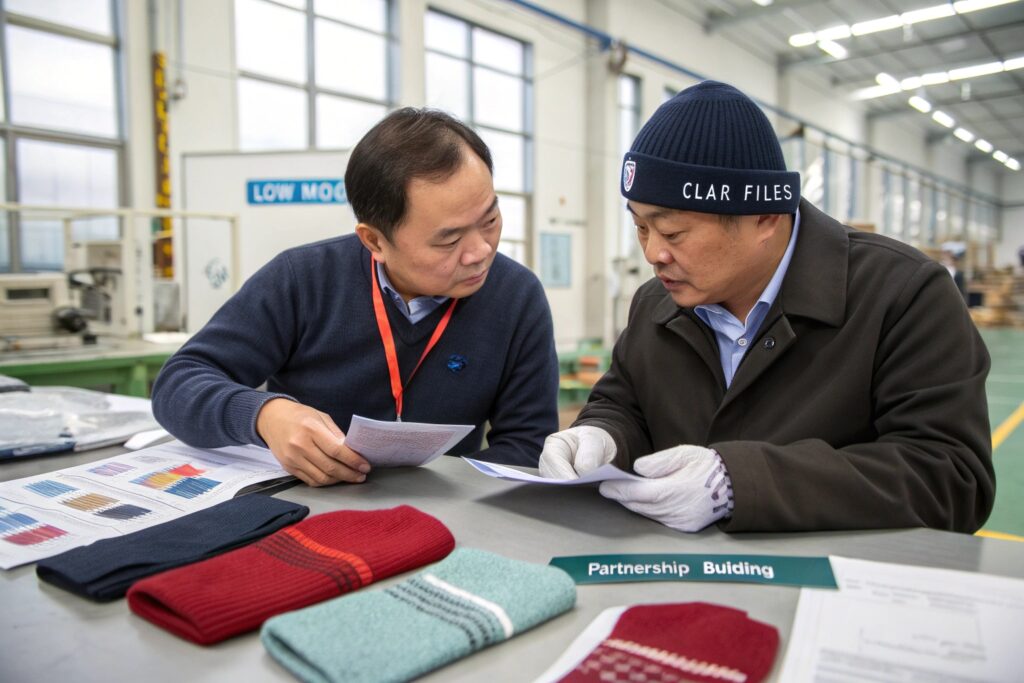
Practical Tips for Small-Batch Success
| Strategy | Why It Works |
|---|---|
| Combine SKUs with Similar Yarn | Reduces color dyeing waste and MOQ pressures |
| Use Pre-stock Yarn Colors | Faster sampling and no dyeing setup required |
| Approve with Digital Swatches | Shortens lead time on lab dips |
| Book Off-Season Production Slots | More room for small runs in slow periods |
| Request Pre-Scheduling Option | Guarantees space if you reorder |
AceAccessory supports:
- MOQ of 300 pcs per style for beanies, scarves, and gloves
- Yarn swatch books mailed to clients for fast selection
- In-house project managers who consolidate small runs across buyers
Our network is ideal for boutique retailers or growing brands who need quality without massive inventory.
Conclusion
Finding a reliable Chinese factory for knit and crochet accessories means knowing where to look and how to ask. From flat-knit beanies in Shaoxing to hand-crocheted trims in Wenzhou, the right supplier is out there—if you know what certifications, skills, and order strategies to check. At AceAccessory, we bridge these gaps for global clients who value craftsmanship and consistency.

